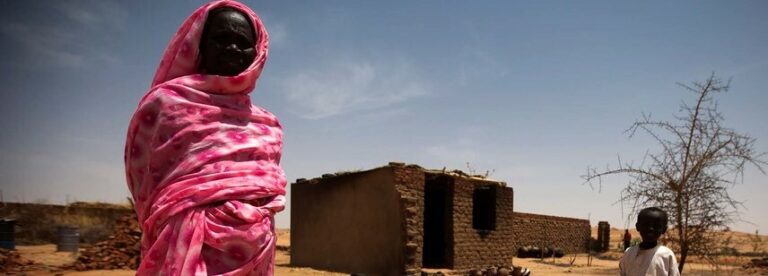Families trapped inside the besieged North Darfur state capital, El Fasher, Sudan, face starvation, the World Food Programme (WFP) has warned.
In a press release issued Tuesday, the WFP called for an increase in humanitarian supplies despite the city being cut off.
“The city is cut off from humanitarian access, leaving the remaining population with little choice but to fend for survival with whatever limited supplies are left,” the agency said.
The WFP said it has been unable to deliver food assistance to El Fasher by road for over a year, as all roads leading there are blocked. However, it continues to provide electronic cash support to 250,000 people in the city, allowing them to purchase whatever food remains in markets—though this falls far short of the massive needs.
“Everyone in El Fasher is facing a daily struggle to survive,” said Eddie Rowe, WFP’s country director in Sudan. (Note: Corrected title based on WFP’s current leadership structure—Eric Perdison is no longer the regional director for Eastern and Southern Africa.
“People’s coping mechanisms have been completely exhausted by over two years of war. Without immediate and sustained access, lives will be lost.”
With trade routes cut off and supply lines blocked, basic food items like sorghum and wheat reportedly cost up to 460% more in El Fasher than in the rest of Sudan. Community kitchens, set up by local groups during the war to feed the hungry, are now mostly nonfunctional, with only a few still operating.
Civilian infrastructure, including markets and clinics, has been attacked, and reports indicate some families are resorting to eating animal fodder and food waste to survive. Many who have fled cite escalating violence, looting, and sexual assault.
“In El Fasher, there was a lot of shelling and hunger. Only hunger and bombs. That’s why we left,” said 8-year-old Sondos, who fled with her family after surviving on only millet. She is among nearly 400,000 people recently displaced to Tawila, where they receive WFP support.
Across Sudan, the WFP reaches over 4 million people each month, including 5.5 million in May alone, in the country’s most food-insecure areas. This includes nearly 1.7 million people (80% of those facing famine or at risk of famine) and over 600,000 women and children receiving nutritional supplements.
The WFP’s assistance has helped reduce famine risks in six areas of Central Darfur and two in West Darfur. However, with the rainy season underway, road access to Darfur will soon be cut off, threatening to reverse fragile gains if aid is interrupted.
A joint WFP and UNICEF convoy carrying food supplies for El Fasher was attacked in June, killing five people and destroying aid.
The WFP says it needs $645 million over the next six months to continue emergency food, cash, and nutrition assistance. Funding shortages have already forced difficult cuts, leaving some families in eastern Sudan’s displacement camps, who relied on WFP support for two years, with nothing.
The WFP is the world’s largest humanitarian organization, providing emergency food aid and supporting recovery from conflict, disasters, and climate change impacts.




